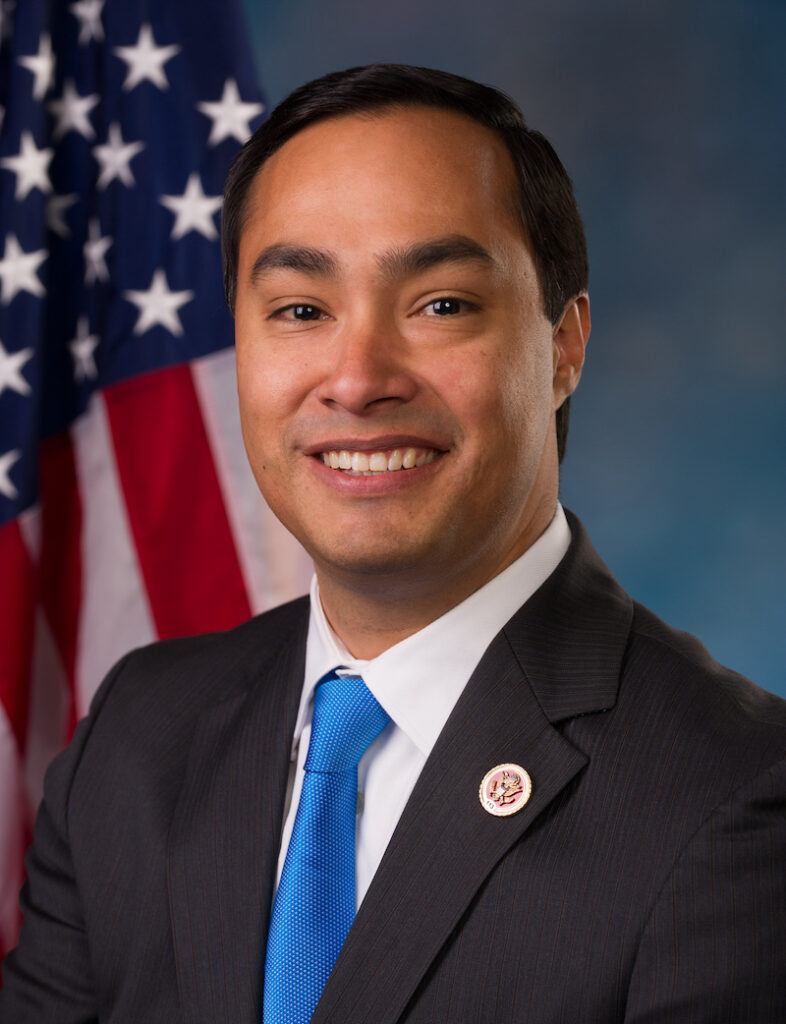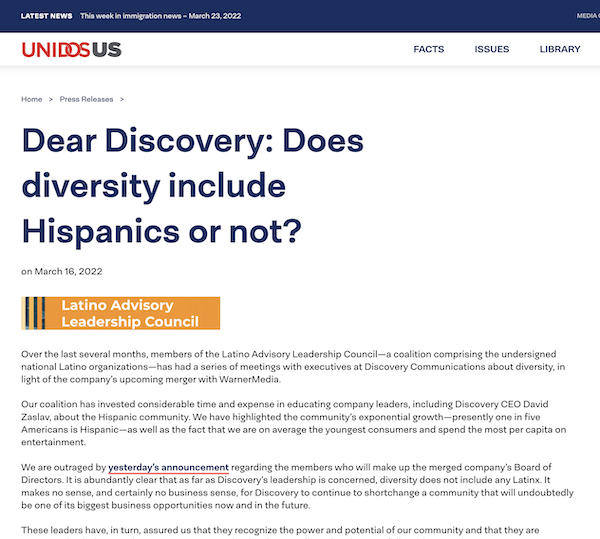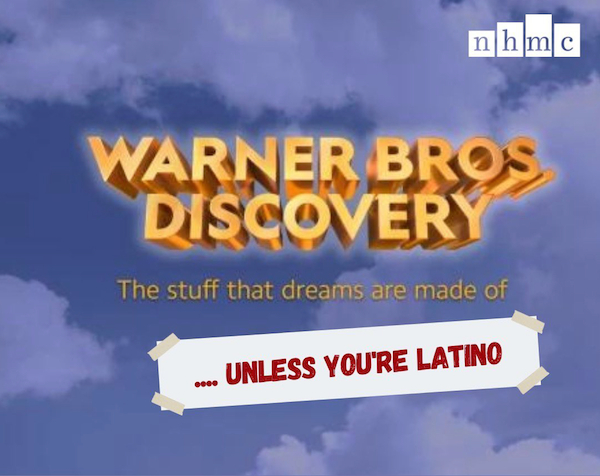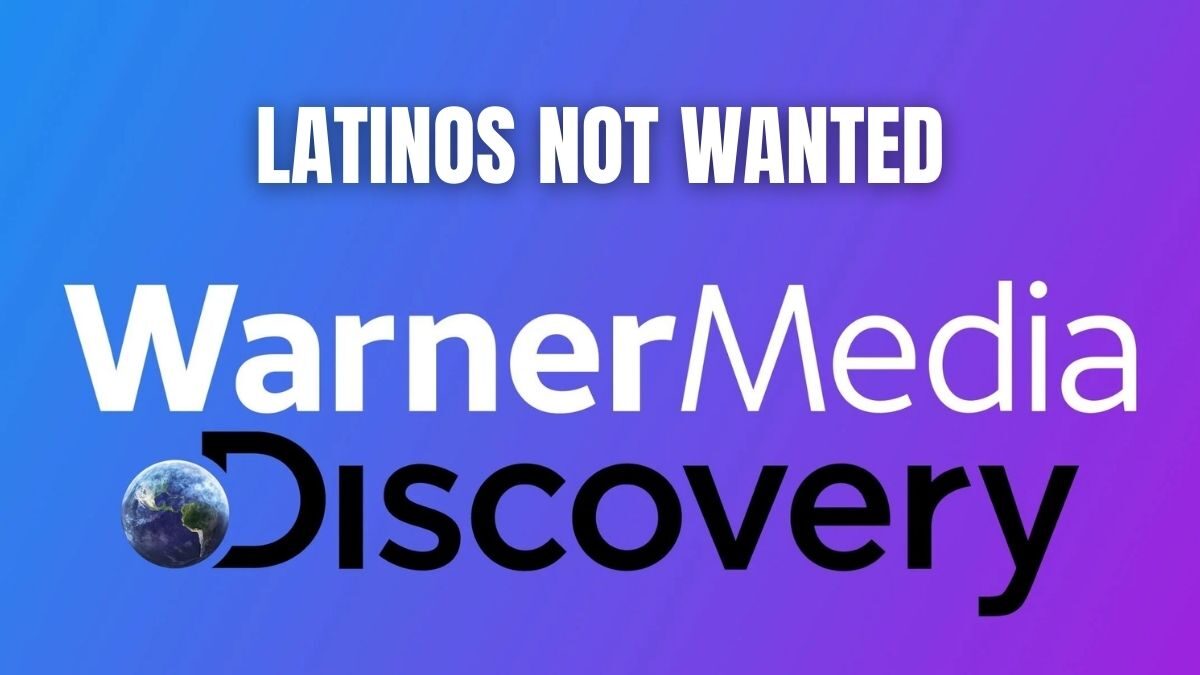(Photo: Warner/Sam Cook)
By Saida Pagán
Executives of Warner Bros. Discovery, a soon-to-be formed media entity, are facing harsh criticism these days from Latino advocates raising serious questions about the entertainment giant’s commitment to diversity and inclusion.

In early December 2021, a group of Congress members, led by Texas Representative Joaquin Castro, urged the United States Department of Justice to investigate the proposed WarnerMedia-Discovery merger for possible violations of antitrust laws. They also asked the DOJ to examine whether the merger would reduce diverse content in a less competitive market. Last year’s General Accountability Office study found that Latinos are more underrepresented in media and entertainment than in any other industry. However, in spite of these concerns, the Warner Bros. Discovery merger is moving forward.
Discovery, Inc. is expected to acquire AT&T’s WarnerMedia in a $43 billion merger to be finalized later this spring and the two companies recently announced their appointments to the new board of directors. All six of Discovery’s appointees are white men. And while five of AT&T’s seven appointees are people of color, not one Latino was named–this in spite of the fact that nearly one-fifth of the US population identifies as Latinx.
“We are outraged by [the] announcement,” reads a statement published on the website of UnidosUS, the United States’ largest Latino non-profit advocacy organization. The comments are attributed to the Latino Advisory Leadership Council, a group made up of more than a dozen Latino national organizations. “It is abundantly clear that as far as Discovery’s leadership is concerned, diversity does not include any Latinx.”

Among the organizations listed as members of the Leadership Council are the U.S. Hispanic Chamber of Commerce, the Latino Corporate Directors Association and the Latino Film Institute, an arts non-profit founded by actor Edward James Olmos.
“By failing to bring Latino representation to the boardroom, Warner Bros. Discovery is not only missing a crucial opportunity to build bridges with our community,” said Brenda Castillo, President and CEO of the National Hispanic Media Coalition, “but [is] also shortchanging the next generation of Latinx writers, directors and artists in Hollywood and beyond,” Castillo added.
Even the National Urban League is lending support. “The exclusion of Latino representation is a missed opportunity to build a leadership team that is as dynamic and insightful as it could be,” said NUL President and CEO, Marc H. Morial in a press release.
We reached out to Discovery on multiple occasions for comment on the concerns raised in this article, but we have not received a response.
In May 2021, an agreement was announced to merge AT&T-owned WarnerMedia with Discovery, Inc. and form Warner Bros. Discovery, a new company. The deal would combine storied WarnerMedia properties such as the Warner Bros. film and TV studio, HBO and CNN with Discovery’s HGTV, Animal Planet, the Food Network and other holdings, making it one of the largest media conglomerates in the world.

Since then, concerns have been growing among some Latino advocates who cite research data showing an already severe underrepresentation of Latinos in both film and television projects.
“Mergers have never worked out for Latinos. Our numbers have actually gone down when two companies merge,” said Ana Valdez, Executive President of the Latino Donor Collaborative. The LDC is a non-profit that produces data on the state of US Latinos in many sectors including media.
”Discovery is one of the companies that have the [fewest] Latinos behind and in front of the camera–less than 0.4 percent of all the leads on all Discovery channels–that means only one show in 2021. Zero showrunners and zero directors and zero executives who can greenlight a show—for us Latinos, it is a terrible lack of validation,” Valdez said.
This week’s release of UCLA’s “Hollywood Diversity Report 2022 Part 1: Film,” further underscores the problem of low visibility of Latinos in media and entertainment. According to the study, Latinos represent 18.7% of the U.S. population however, remain “extremely underrepresented” in all the major film categories accounting for only 7.1% of lead actors. In contrast, African Americans, who are 13.4% of the population were “slightly overrepresented in leading film roles at 15.5% of the lead roles.
According to the Latino Advisory Leadership Council’s online statement, for the past several months, coalition members have been in talks with Discovery executives educating and informing them about the value of the Latino community. “These leaders have, in turn, assured us that they recognize the power and potential of our community,” the statement continued. “But as always, actions speak louder than words.”
“Latinos make up nearly 20 percent of the U.S. population and nearly 30 percent of movie ticket buyers,” said Representative Castro (TX-20). “But with [the] board announcement, AT&T and Discovery made it clear that they don’t value our voices. This is what cultural exclusion looks like.”



